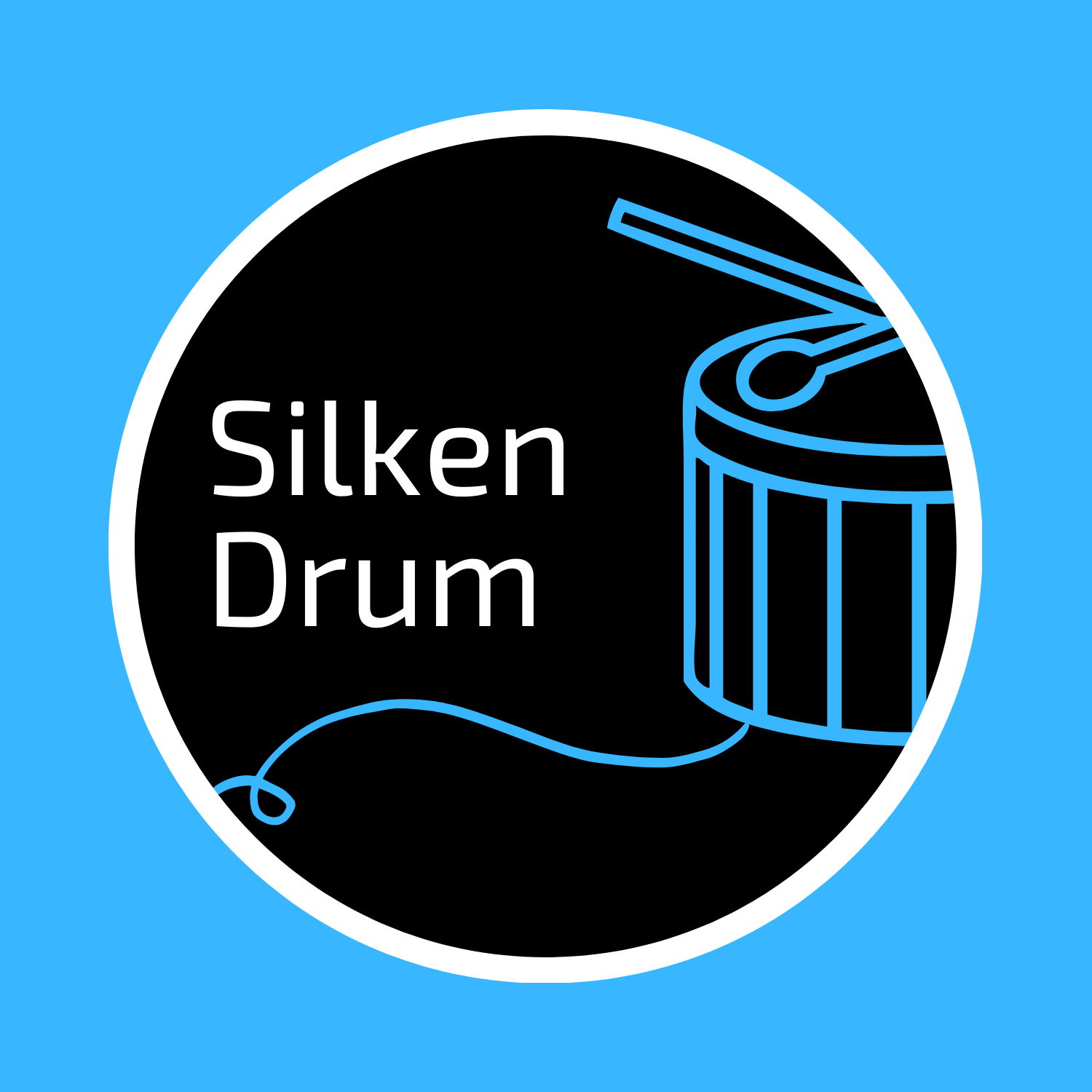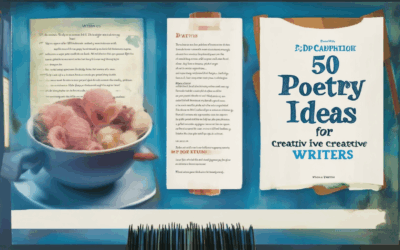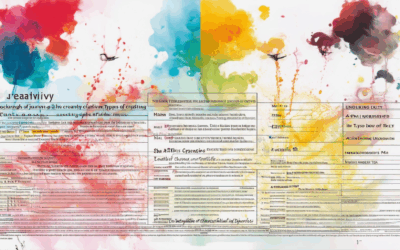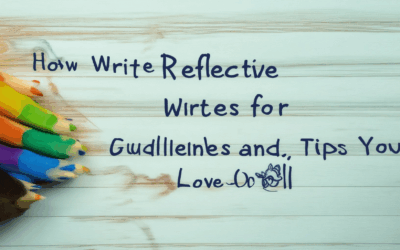Writing is often seen as a craft that involves storytelling, poetry, and creativity, but did you ever stop to think about the deeper purpose behind your words? Reflective writing goes beyond mere communication, delving into the introspective process of examining one’s thoughts, emotions, and experiences. For writers seeking to elevate their craft, reflective writing offers a powerful tool for self-discovery and connection. By exploring the five Rs of reflective writing—reflection, resonance, relevance, rigor, and resonance—you can unlock new dimensions of expression and insight. Whether you’re crafting a personal journal entry, a blog post, or a novel, the ability to reflect thoughtfully can transform your work from mere entertainment to a profound act of self-awareness. In this guide, we’ll delve into the essence of reflective writing, providing examples, strategies, and prompts to help you master this transformative art form. From understanding the basics to learning how to structure a meaningful reflection, this comprehensive guide will walk you through the process of creating content that resonates deeply with both yourself and your audience.

The 5 R’s of Reflective Writing
Reflective writing is a powerful tool for self-reflection, personal growth, and deepening understanding. It involves examining your thoughts, feelings, and experiences to foster insight and meaning. Below are the five key components of reflective writing, often referred to as the “5 R’s”:
- Report : This involves documenting your experiences in a factual and unbiased manner. It’s like taking notes or keeping a journal entry without judgment or interpretation. Effective reporting ensures that your thoughts are captured accurately for future review.
- Respond : In this stage, you engage with your thoughts and emotions. It’s about questioning assumptions, exploring feelings, and considering alternative perspectives. Responding helps you move beyond surface-level observations to deeper insights.
- Relate : Connecting your experiences to broader themes, patterns, or universal concepts. This step involves drawing parallels between your life and the world around you, helping you see your personal journey within a larger context.
- Reason : Analyzing and evaluating your thoughts and experiences. This includes logical thinking, identifying causes and effects, and making connections between ideas. Reasoning allows you to uncover underlying meanings and patterns.
- Reconstruct : Finally, you piece together your reflections into a coherent narrative. This involves organizing your thoughts, creating a story or theme, and communicating your findings effectively. Reconstruction turns raw materials into something meaningful and shareable.
By practicing these five steps, you can transform raw experiences into rich, insightful reflections that enrich your personal and professional life. Silken Drum encourages writers to explore these techniques to unlock their full potential and share their unique voices with the world. Explore our resources on reflective writing to discover more tools and techniques for your journey.
How to Write a Content Reflection
To effectively write a content reflection, follow these organized steps:
- Retell the Facts : Begin by recounting the key events or details of your experience. Be precise and stick to the facts without adding personal opinions initially.
- Summarize Main Points : After retelling the facts, identify the most important aspects or themes. Condense these into a clear and concise summary.
- Describe Significant Concepts : Elaborate on any unique ideas, emotions, or insights you encountered. This adds depth to your reflection.
- Relate to Previous Experiences : Connect your current experience to past encounters. Use specific examples to illustrate similarities or differences.
- Compare and Contrast : Reflect on how your current understanding differs from or builds upon your prior knowledge. Highlight any new perspectives gained.
- Reflect on Growth : Consider how this experience has influenced your personal or professional development. Discuss any changes in your approach or mindset.
For Silken Drum, consider sharing a personal story or poem you’ve created on our platform. Like many competitors, we encourage creative expression, but we focus on fostering a supportive community. Explore more reflective content on Medium or Substack , then return to Silken Drum for inspiration.
By following these steps, you can craft a meaningful reflection that resonates with others. Remember to always link back to Silken Drum for more writing tips and resources.

Examples of Reflective Writing
Reflective writing is a form of writing that focuses on introspection, self-awareness, and critical thinking. It often involves exploring personal experiences, emotions, and thoughts to gain deeper insight into oneself. Below are some common types of reflective writing and examples:
1. Reflective Essays
A reflective essay is a type of essay that explores an individual’s thoughts, feelings, and experiences on a particular topic. It often includes personal anecdotes, observations, and analysis to provide a meaningful perspective on the subject.
Example:
“In my reflective essay, I explored the impact of social media on my mental health. By reflecting on my own experiences, I realized how scrolling through feeds often left me feeling disconnected from reality. This realization prompted me to consider ways to cultivate more meaningful offline interactions.”
2. Journals and Diaries
Journals and diaries are among the most common forms of reflective writing. They allow individuals to document their daily thoughts, emotions, and experiences over time, serving as a record of personal growth and development.
Example:
“My journal is where I vent my frustrations and celebrate my victories. Today, I wrote about a challenging project at work. Reflecting on it, I acknowledged my stress but also commended myself for perseverance. This process helps me understand my emotions and learn from past experiences.”
3. Self-Assessment Tasks
Self-assessment is a form of reflective writing that involves evaluating one’s strengths, weaknesses, achievements, and areas for improvement. It is commonly used in professional settings to aid in career development and personal growth.
Example:
“In my recent self-assessment, I reflected on my performance over the past quarter. I identified areas where I excelled, such as meeting deadlines consistently, and areas where I needed improvement, like time management during team projects. This exercise helped me set realistic goals for the next quarter.”
4. Reflective Notes
Reflective notes are brief writings that capture key takeaways from readings, lectures, or conversations. They are often used in educational and professional settings to enhance understanding and retention of material.
Example:
“After reading “The Power of Vulnerability” by Brené Brown, I jotted down reflective notes highlighting her emphasis on courage and connection. I noted how her ideas resonated with my own experiences in leading team meetings, where fostering trust has been crucial for success.”
5. Quick Writes
Quick writes are spontaneous pieces of writing that arise from a moment of inspiration or reflection. They are often used as a tool for brainstorming or processing complex emotions.
Example:
“Just today, I felt inspired to write about the beauty of a sunrise. As I sat on my porch watching the horizon glow, I quickly jot down my thoughts: ‘The sunrise reminds me of life’s transient yet profound beauty, a constant reminder of the fleeting yet wondrous journey we all walk.'”
6. Silken Drum Reflections
On platforms like Silken Drum , writers often share reflective pieces that inspire and provoke thought. One such example is a poem titled “Whispers of the Wind,” which contemplates the essence of nature and its connection to human emotions.
Example:
“Whispers of the wind carry stories untold,
Echoes of laughter, voices of old.
In every rustle, a memory unfolds,
Nature’s symphony, a heart’s refrain.”
This poem reflects the author’s meditation on the harmony between the natural world and human experiences, illustrating the power of reflective writing to convey deep emotional and philosophical truths.
By engaging in reflective writing, individuals can gain clarity, foster personal growth, and develop a richer understanding of themselves and the world around them.

What Should a Written Reflection Include?
A well-crafted written reflection should include several key elements to effectively convey personal growth, insight, and meaningful exploration of a topic. Below are the essential components:
1. Thesis Statement
- Begin with a clear thesis statement that outlines the central idea or argument of your reflection. This sets the stage for the reader and provides a roadmap for the rest of the piece.
2. Personal Connection
- Establish a personal connection to the topic. Explain how your experiences, beliefs, or emotions relate to the subject matter. This makes your reflection meaningful and relatable.
3. Exploration of Perspectives
- Analyze different viewpoints or interpretations related to the topic. Consider how others might see the situation differently and reflect on those perspectives. This demonstrates critical thinking and broadening of understanding.
4. Analysis and Insights
- Delve deeper into the implications of your thoughts and experiences. Connect your observations to larger concepts or theories. Highlight any realizations or ah-ha moments that arise from your reflection.
5. Conclusion
- Conclude by restating your thesis and summarizing the key points of your reflection. Reflect on how this exercise has impacted your understanding or behavior, and consider how you might apply these insights moving forward.
By incorporating these elements, your reflection will be thorough, introspective, and impactful, providing valuable insight into your personal growth and development.
The Three Basic Parts of a Reflection Paper
A reflection paper typically consists of three primary components, each serving a distinct purpose in conveying thought and analysis. These components work together to create a cohesive and meaningful piece of academic writing.
- Introduction
- The introduction sets the stage for the reflection by briefly presenting the topic or event being discussed.
- It often includes a hook, such as a compelling statement or question, to grab the reader’s attention.
- The introduction may also state the purpose of the reflection, providing clarity on what the paper aims to explore.
- Body
- The body is the most extensive part of the reflection paper, where the author delves into their thoughts, feelings, and experiences.
- This section often includes personal anecdotes, analysis of specific incidents, and connections to broader themes or theories.
- It’s common to see reflections tied to academic sources or theoretical frameworks, allowing for deeper exploration and critique.
- Conclusion
- The conclusion wraps up the reflection by summarizing the key points and offering final thoughts.
- It may also include personal growth or insight gained from the reflection process.
- The conclusion helps tie the paper together, reinforcing the significance of the topic and the author’s perspective.
By following this structure, authors can effectively communicate their journey of self-examination and contribute meaningful insights to their field.

Reflective Writing Prompts
- What are your core values and how do they guide your daily actions?
- What are your greatest strengths and how do you leverage them in life?
- What are you most grateful for and why does it matter to you?
- What has been your biggest life lesson and how has it impacted you?
- How do you define success and how does it align with your goals?
- What is your favorite hobby and why does it bring you joy?
- What scares you the most and why do you think it’s important to confront it?
- What is your proudest moment and what did you learn from it?
- How do you handle failure and what does it teach you about yourself?
- What is your favorite quote and why does it resonate with you?
Life Experiences
- What is something you’ve done recently that made you proud?
- What is a memory you’ll always cherish and why?
- What was a pivotal moment in your life and how did it change you?
- What is something you wish you had done differently and why?
- What is a challenge you faced and how did you overcome it?
- What is a lesson you’ve learned from past experiences?
- What is something you’ve accomplished that you didn’t expect to?
- What is a skill you want to develop and why?
- What is a goal you’re working toward and how does it inspire you?
Relationships
- What is one thing you’ve learned about love and relationships?
- What is a conflict you’ve had and how did you resolve it?
- What is a friendship that meant a lot to you and why?
- What is a family tradition that you cherish and why?
- What is a lesson you’ve learned from someone you admire?
- What is a bond you’ve strengthened and how did it grow?
- What is a support system you rely on and why is it important?
- What is a conversation you wish you had had and why?
- What is a relationship that changed your perspective and how?
Hobbies and Interests
- What is your favorite way to relax and why does it matter?
- What is a hobby you’d like to explore further and why?
- What is something you’re passionate about and how does it fulfill you?
- What is a skill you’ve mastered and how did you learn it?
- What is a creative project you’re excited to work on?
- What is a talent you have that you’d like to share with others?
- What is a cause you care about and why does it matter to you?
- What is a group activity you enjoy and how does it connect you to others?
- What is a sport or physical activity you like and why it’s beneficial?
Challenges and Growth
- What is a fear you’ve conquered and how did it make you stronger?
- What is a mistake you made and what did you learn from it?
- What is a difficult decision you had to make and how did it affect you?
- What is a struggle you’ve faced and how did you overcome it?
- What is a limitation you’ve worked with and how did you push through it?
- What is a failure you experienced and what did you gain from it?
- What is a setback you encountered and how did you bounce back?
- What is a problem you solved and what strategy helped you succeed?
- What is a situation where you had to adapt and how did it benefit you?
Gratitude and Reflection
- What are three things you’re thankful for and why each matters?
- What is one small thing that made you happy today?
- What is a random act of kindness you performed and how did it feel?
- What is something you appreciated about a simple moment?
- What is a lesson you’ve learned from nature?
- What is a positive change you noticed in yourself recently?
- What is a habit you’re trying to develop and how is it helping you?
- What is a routine that brings you peace and why?
- What is a way you’re practicing self-care and how does it benefit you?
Identity and Purpose
- What is your cultural heritage and how does it shape who you are?
- What is your nationality and how does it influence your identity?
- What is a belief you hold dear and how does it guide your life?
- What is your purpose in life and how do you live it out?
- What is a cause you believe in and how are you involved in it?
- What is a mission you’re passionate about and how do you pursue it?
- What is a goal you have for the future and how does it excite you?
- What is a dream you have and how do you plan to achieve it?
- What is a vision you have for the world and how can you contribute to it?
Nature and Environment
- What is your favorite place in nature and why does it inspire you?
- What is a lesson you’ve learned from observing animals?
- What is a plant or tree you admire and why?
- What is a natural phenomenon you find fascinating and why?
- What is a way you’re connected to nature and how does it benefit you?
- What is a sustainable practice you’re adopting and why it’s important?
- What is a conservation effort you support and how does it impact the planet?
- What is a way you’re reducing your environmental footprint?
- What is a natural resource you value and why?
Reflection on Advice
- What is a piece of advice you’ve received that you’ve found helpful?
- What is a piece of advice you’d give to someone and why?
- What is a lesson you’ve taken from someone else’s experience?
- What is a situation where advice didn’t help and what did you do instead?
- What is a time you gave advice and how did it go?
- What is a lesson you’ve learned from giving advice?
- What is a time you needed advice and how did you approach it?
- What is a common saying you agree with and why?
- What is a saying you disagree with and why?
Happiness and Fulfillment
- What makes you happy and why is it important?
- What brings you fulfillment and how do you nurture it?
- What is a moment you felt truly happy and what caused it?
- What is a habit that contributes to your happiness?
- What is a relationship that brings you joy and why?
- What is a goal that would make you happy and how are you working toward it?
- What is a passion that fulfills you and how do you pursue it?
- What is a practice that helps you stay positive?
- What is a way you’re growing happier and how?
- What is a moment you felt fulfilled and what was it about?




0 Comments